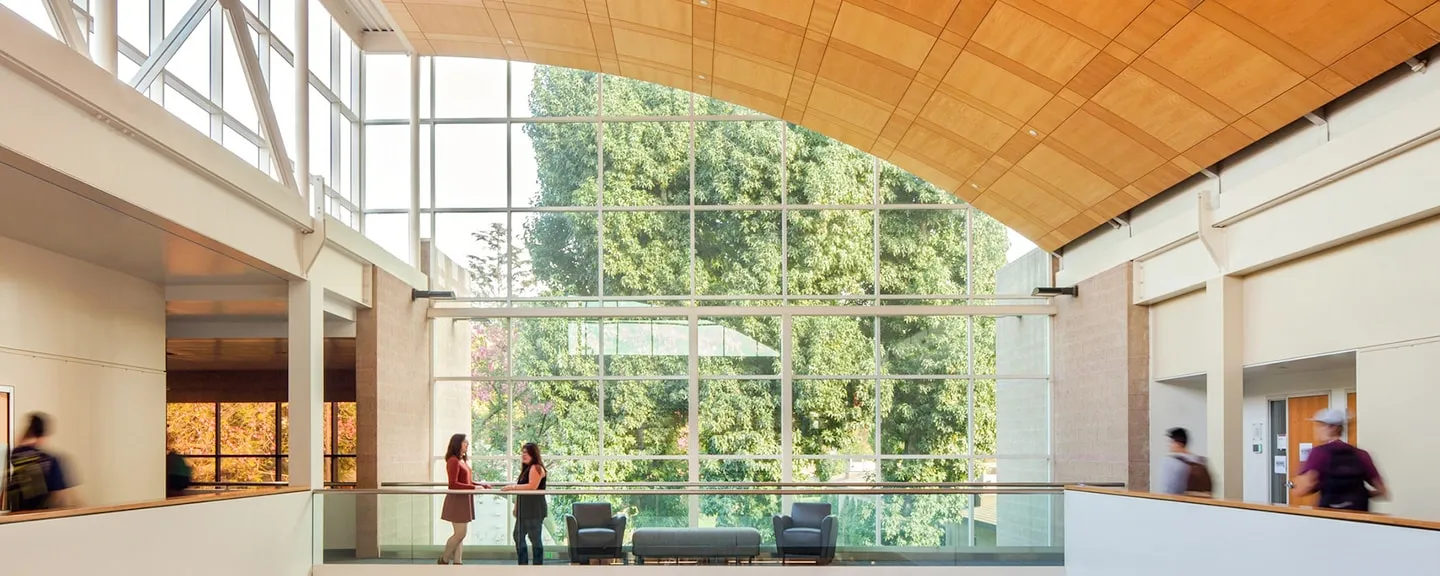- Home
- >
- APU Articles
- >
- News Article
How Christian Universities and the CCCU Make an Economic Impact
September 20, 2018 | Written By Stephen Mark

But beyond the on-campus impact, did you know that the 142 Christian universities that are CCCU members also generate a significant economic impact, which in turn benefits current students, alumni, and their families?
Here’s a deeper look at some of the economic benefits CCCU institutions provide, as laid out in a 2017 report from the CCCU and Econsult Solutions, Inc.
Pumping Money into the Economy
The economic impact of CCCU schools (and their 3.5 million alumni) exceeds $60 billion each year. Included in that eye-popping figure is nearly $35 billion in earnings and spending by alumni—who often earn more as a result of their Christian university degrees—and nearly $26 billion from operations and capital investments at CCCU institutions.
Additionally, the $9.7 billion in federal tax revenue generated by the economic activity of Christian universities and alumni creates even greater opportunities for more young Americans to pursue higher education. When the federal government invests in these institutions, the entire nation benefits: For every dollar in federal grants a CCCU school receives, the institution generates more than $20 in federal tax revenue and $5 in additional financial aid to help more students afford college. That’s a huge economic impact, considering annual federal grant aid exceeds $470 million annually.
Creating New Jobs
The economic stimulus created by CCCU schools—including the nearly $18 billion in salaries and benefits—supports nearly 340,000 jobs each year. Among the job seekers, of course, are the many alumni who’ve been uniquely trained and equipped to competitively enter their field of study.
But here’s the thing that sets many graduates of CCCU institutions apart: They’re more likely to choose careers that serve their neighbors, sometimes passing over more financially lucrative jobs to do so. The number of CCCU graduates who choose a career in human services (which includes counseling, mental health, family, and community services) is 12.7 percent—nearly three times the national average!
CCCU alumni are also becoming educators at a higher rate than the national average, further demonstrating the dedication to service with which graduates leave campus. Cumulatively, students complete 5.4 million hours of volunteer service annually on (and around) CCCU member campuses.
Building Unique Opportunities
It’s no secret that the value proposition presented by colleges and universities has faced serious rebukes of late, as many Americans wonder whether higher education is truly accessible and feasible for all. Azusa Pacific University has answered this critique by issuing more than $136 million in financial aid—each year—to around 96 percent of the student body.
Additionally, a growing number of students at APU and other CCCU institutions are first-generation college students. A third of all students enrolled at CCCU schools are the first in their family to attend college, which is a higher percentage than at other four-year private universities. At APU, the GEN1 Scholars Program eases the transition of first-generation students by surrounding them with services like academic support, mentoring, workshops for personal development, workshops for their parents and families, and gatherings with fellow students.
Furthermore, CCCU institutions strive to create opportunities for higher learning for a diverse range of students. Between 1999 and 2015, CCCU schools increased their non-white student populations from 18 percent to nearly 25 percent, on average. APU values diversity in the student body, and it shows: Of the more than 10,000 enrolled students, 69 percent are women, 52 percent are ethnic (Black, Asian, Hispanic, American Indian or Native Alaskan, Native Hawaiian or other Pacific Islander, and two or more ethnicities), and around 3 percent come from outside the United States. APU believes that an ethnically diverse student body creates a more vibrant and well-rounded educational experience for all students.
What does this all mean for prospective students and their families? It means that when they choose a Christian university like APU, their choice makes economic ripples that extend far beyond the classroom or the dorm—they’re improving individual lives, local communities, and regional economies.
Looking to become a part of the APU community? You can easily apply online.